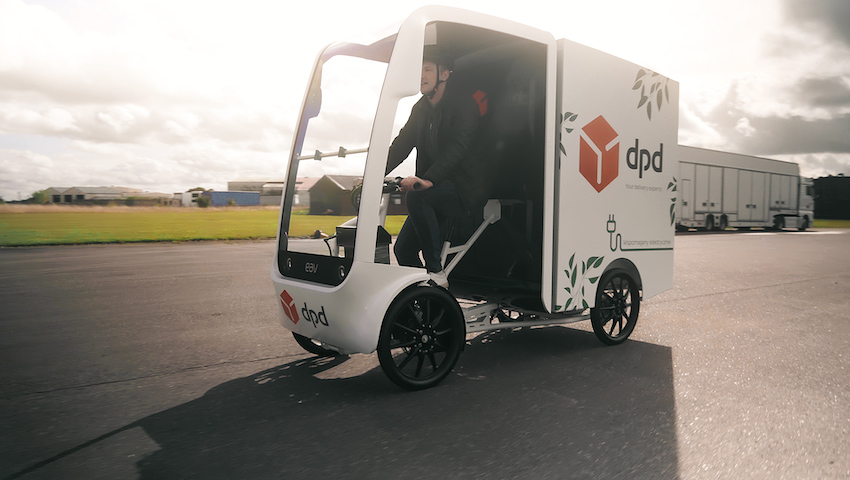Electric Assisted Vehicles: The company changing the world of deliveries
Adam Barmby of Electric Assisted Vehicles shares his views on the future of micro-mobility on the Everything EV Podcast.
Oxfordshire-based micro-mobility firm Electric Assisted Vehicles, or ‘EAV’, has created and developed a series of pioneering eCargo Bikes, designed to decarbonize the last-mile delivery sector.
The company’s vehicles, which have already been used by the likes of DPD and Ocado, are four-wheeled e-bikes, assisted by an electric motor with a design which has been specifically tailored for delivering in urban environments.
In the latest episode of the Everything EV Podcast, Adam Barmby, founder and CEO of the company, explained why it was so important to target this market and discussed the benefits of the e-bikes.
He said: “It’s a big polluter from a carbon point of view, but actually it’s also the largest cost. The final mile usually accounts for more than 50% of the total cost of delivery so the carriers want a much easier, quicker and cheaper solution to do that last mile delivery. With a vehicle like this, you can pretty much guarantee your journey times, you can go down cycle lanes, into pedestrian zones, you can park inside, you can’t get parking ticket and you are averaging twice the speed than you would in a van in the city centre. So actually, you can already see just by saying that the optimization of this vehicle over a van is near enough 40 to 50% more than that.”
It is no secret that the world is moving towards an electric future, and products such as EAV’s electric assisted eCargo Bikes are just one piece of a much larger puzzle.
When discussing what more needs to be done to accelerate the transition to electric vehicles, Barmby believes it is all about taking cars out of cities and tailoring the spaces for pedestrians, cyclists and electric and zero-emission vehicles.
He continued: “Intercity, you’re never going to get rid of that sort of long-haul lorry, big van area, but inner city, vehicles will be banned, whether they’re electric or not. That’s already starting in parts of London, Bristol etc, especially even in Europe. Paris is a fantastic model for how I think the future of our cities look because it basically just got rid of all the all the roads and they’re now cycle lanes and pedestrian zones.
“If you’re asking me what I think in the future of inner urban mobility, it doesn’t involve a car in it. It includes micro-mobility based products and we are actually involved in different micro-mobility infrastructure projects where we can showcase where we think that this sort of commercial led micro-mobility has to fit into our current infrastructure which is not what we have right now. Equally, the government has set aside £2 billion in the UK for cycling and walking infrastructure and that will be a very large part of our city.”






